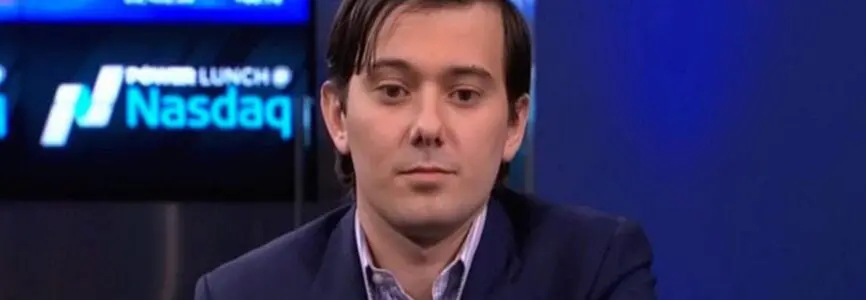Bioethics Forum Essay
Making an Example of Martin Shkreli
Last month, the New York Times reported that the price of a 62-year old little-known drug, Daraprim (pyrimethamine), rose overnight from $18 to $750 a pill. About 100 pills are needed to treat toxoplasmosis, a disease caused by a parasite that lives inside a third of humans but can cause life-threatening infestations in people with AIDS, cancer, or other conditions that compromise the immune system. The eye-popping price increase followed Daraprim’s acquisition in August by Turing Pharmaceuticals, a small drug company founded and led by 32-year old Martin Shkreli, a former hedge fund manager. Shkreli handled the newfound press attention less than gracefully, and quickly became the face of cold-hearted greed in the pharmaceutical industry.
Since then, pundits have disparaged the ability to do what Shkreli did, presidential candidates have vowed to restrict price gouging, and Democrats in the House Committee on Oversight and Government Reform requested a hearing with Shkreli. My colleagues and I at PharmedOut are fine with making an example of the young CEO – as long as we remember that Turing is one of dozens of drug companies, large and small, doing exactly the same thing.
The antibiotic tetracycline (around since 1948) and the antidepressant clomipramine (used since the 1960s) went up in price 2,200 percent and 3,600 percent, respectively, over the last few years. Another infamous case is of colchicine, a drug derived from the autumn crocus, a plant used in ancient Greece and ever since to treat gout. Available as a generic drug since the 1800s, exclusive rights for colchicine were sold to a drug company in 2009. The company promptly raised the price from about 10 cents to $6 per pill.
According to the National Prescription Coverage Coalition, so far in 2015, the average wholesale price of almost 50 drugs more than tripled since last year. An AARP study found that prices of brand name drugs are rising more from year to year – from 5.7 percent in 2006 to 12.9 percent in 2013.
The reasons, or lack thereof, for price increases of Daraprim and other drugs are the same, and they go back to the lack of regulation of drug prices in the United States. As Marcia Angell explained in the Washington Post,companies raise prices simply because they can.
Drug companies cite many reasons for the increases. A popular one, deployed by Shkreli, is that higher prices cover the cost of innovation, or research and development. In fact, drug companies spend at least three times as much on marketing as they do on research. Angell also points out that many drug discoveries come out of university labs with public funding from National Institutes of Health, with little real innovation coming from drug companies.
Amid all the outrage, Shkreli announced that Turing would lower Daraprim’s price. The new price has not been set, but it will probably still be closer to $75,000 for a course of treatment than the original $1,800 price tag before Turing bought the drug.
The pharmaceutical lobby is still incredibly powerful, so we are not optimistic about a policy change. But if the Daraprim incident raises Americans’ understanding about the Wild West of prescription drug pricing, that is a major step.
Nicole Dubowitz is the newsletter editor of PharmedOut, a Georgetown University Medical Center project that advances evidence-based prescribing and educates health care professionals about pharmaceutical marketing practices. A version of this post originally appeared in PharmedOut Phodder, the project’s newsletter.













